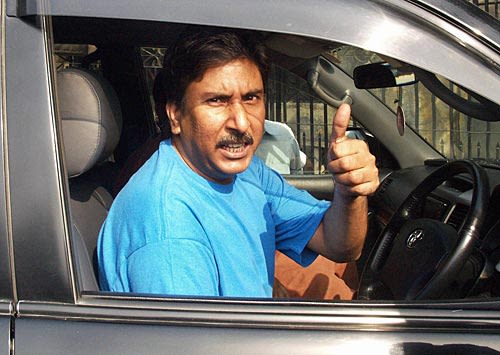Saleem Malik‘s ongoing quest to be reintegrated into Pakistan cricket has been pushed back once again by the PCB. The board believes Malik hasn’t again responded satisfactorily to the contents of a conversation 20 years ago in which he talked about fixing cricket matches.
While Malik insists he had submitted a response last month to the board regarding a sting operation by an English tabloid 20 years ago, the PCB does not believe his response appropriately addresses the matter.
After the Qayyum report was released in 2000 – in which Malik was banned for life – the now-defunct newspaper News of the World released a video in which Malik was allegedly caught offering to potentially corrupt players and games in exchange for money.
The reporter involved in the sting – Mazher Mahmood – was the same as the one that carried out the 2010 Lord’s spot-fixing operation. The revelations and allegations arising from the sting were not part of the Justice Qayyum inquiry; that inquiry took place in the year before this story and the report had been made public days before the sting.
While Malik remained out of the fold for a number of years, he has recently begun to appeal to the PCB to reintegrate him, and made himself available for coaching or mentoring roles. The PCB, however, remain adamant that will not be possible until Malik has substantively dealt with the questions that the sting raised.
Malik submitted his response in June, but the PCB’s statement on Friday makes clear they are not satisfied with its contents. ESPNcricinfo understands the board believes the response to be irrelevant to the issue at hand. “In the backdrop of the above, the PCB will be unable to proceed any further until such time you respond on the said matter,” the statement said.
Malik’s cricketing career was ultimately sullied by match-fixing scandals. In a judicial inquiry that began in 1998 and continued for 13 months, he was found guilty of bribing Australian cricketers Shane Warne and Mark Waugh to lose the 1994-95 Karachi Test. Malik was fined Rs 1 million and banned for life in 2000, but eight years later his sentence was overturned by a Lahore sessions court, allowing him theoretically to return to the fold. However, today’s statement from the PCB makes clear little progress has been made between the two parties since Malik began his latest attempt to completely rehabilitate himself.
The PCB accused the former captain of “denial and avoidance” with respect to the transcripts, and referred to an apology he had made in 2014 in which he appeared to “accept my wrongdoing, apologise to the fans and start my rehabilitation process”.
The PCB also addressed Danish Kaneria‘s recent appeals for rehabilitation. The legspinner was banned for life in 2012 by the ECB after a disciplinary panel found him guilty of corruption after a stint in county cricket in the UK, implicated during fellow player Mervyn Westfield’s criminal trial. The board told the player he was appealing to the wrong party, and was advised to approach the ECB, the board that had banned him in the first place.
“You were banned for life by the ECB’s Cricket Discipline Commission after it was established that you had ‘knowingly induced or encouraged Mervyn Westfield not to perform on his merits in the Durham match'” the statement said. “You subsequently challenged the decision before the Appeal Panel of the Cricket Disciplinary Commission, which was upheld. Then, you appealed before a commercial bench of the High Court in London, which was dismissed. Then, you appealed before the Court of Appeal (Civil Division), which was rejected. The PCB’s rehabilitation programme is offered to players upon conclusion of the respective periods of ineligibility and not for players who are serving life bans.”
